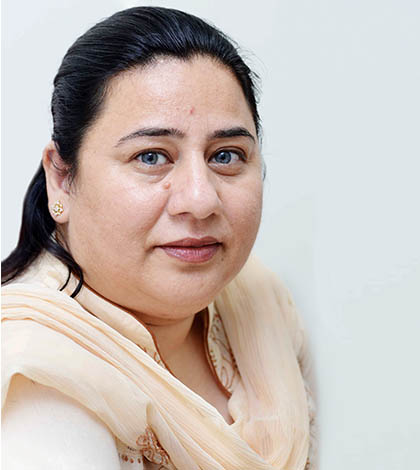
 Educating a woman is educating a generation, believes Dr Shabistan Ghaffar, Chairperson, Committee on Girls Education, National Commission For Minority Educational Institutions (NCMEI), who has made tremendous efforts in breaking various taboos on girls’ education in the Muslim community. In an interaction with ENN, she says education is a weapon which can take nations ahead and women can play a decisive role in this progress. Excerpts from the interview
Educating a woman is educating a generation, believes Dr Shabistan Ghaffar, Chairperson, Committee on Girls Education, National Commission For Minority Educational Institutions (NCMEI), who has made tremendous efforts in breaking various taboos on girls’ education in the Muslim community. In an interaction with ENN, she says education is a weapon which can take nations ahead and women can play a decisive role in this progress. Excerpts from the interview
How challenging is the task of empowerment of minority women through education?
Well, it is challenging every time when one talks of women empowerment. Women, regardless of religion, region or colour are a minority within minority. Every time she raises her voice for equality, even in terms of educational empowerment, she has to struggle and convince every layer of society for her rights. Sometimes, even if parents are motivated to provide education to girls, certain social taboos in the name of religion, culture and region prohibit them from doing so.
As Chairperson, Committee on Girls’ Education, NCMEI, what are the recommendations that have you made?
A number of suggestions and proposals have emerged during close interactions of NCMEI members and its Committee on Girls’ Education with policymakers, regulators, stakeholders, social activists, functionaries of NGOs, community leaders and the like. We gave more than 30 recommendations to the government. These included scholarships, open schooling, distance learning, community college, hostels, teachers training, expansion of Hunar scheme and recognition of Muslim women artisans. Most of these recommendations have been implemented by the ministry.
What according to you is the state of minority education for girls in the country?
The state of minority education in India is generally regarded as unsatisfactory, particularly for Muslims and Buddhists, who are categorised under the most educationally backward sections of the country. Although Christians, Sikhs and Parsis are deemed as educa tionally better off, they have their own specific issues and problems with regard to education. In spite of being the largest minority group in India, the Muslim community is also faced with immense tribulations, especially in the field of education where it cascades behind. Dearth of suitable educational institutions and lack of proper infrastructure in Muslim-dominated localities is one of the most recurring inadequacies which have had a bearing on the community’s educational attainments for a long time.
How do you see the work of civil society and educational institutions in promoting education?
Community sensitisation is one of the major steps taken by the NCMEI’s Committee on Girls Education. The role of civil society in the process of community development is increasing with the passage of time and the central and state governments are allocating huge funds in the social sector. However, there is a dearth of non-government organisations working exclusively among the Muslim and Buddhist communities. For other minorities such as Christians and Sikhs, quite a good number of NGOs are working and serving the interest of the members of the respective communities. Therefore, there is need to motivate local Muslim activists to form associations committed to community development in large numbers. Moreover, most of the NGOs already serving the community lack due capacity in terms of information, training, documentation and resource management.


















